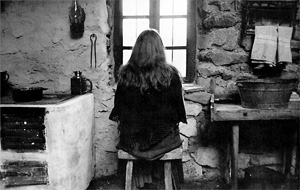A horse and a philosopher
View(s):Hungarian philosophical drama film ‘The Turin Horse’ directed by Béla Tarr and Ágnes Hranitzky, story about a rural farmer who is forced to confront the mortality of his faithful horse will be screened at 4 pm on August 27 at the Sri Lanka Foundation.
 Organised as part of weekly film screening presented by Digtil Film Academy of the Sri Lanka Foundation, the film will be shown following an introduction by: Kaushalya Kumarasinghe on the topic ‘Aesthetics of (non) waiting’
Organised as part of weekly film screening presented by Digtil Film Academy of the Sri Lanka Foundation, the film will be shown following an introduction by: Kaushalya Kumarasinghe on the topic ‘Aesthetics of (non) waiting’
1889. German philosopher Friedrich Nietzsche witnessed the whipping of a horse while travelling in Turin, Italy. He tossed his arms around the horse›s neck to protect it and then collapsed to the ground. In less than one month, Nietzsche would be diagnosed with a serious mental illness that would make him bed-ridden and speechless for the next eleven years until his death.
But whatever did happen to the horse? This film, which is Tarr›s last, follows up this question in a fictionalized story of what occurred. The man who whipped the horse is a rural farmer who makes his living taking on carting jobs into the city with his horse-drawn cart. The horse is old and in very poor health, but does its best to obey its master›s commands. The farmer and his daughter must come to the understanding that it will be unable to go on sustaining their livelihoods. The death of the horse is the foundation of this tragic tale.
The film was premiered in 2011 at the 61st Berlin International Film Festival, where it received the Jury Grand Prix.


